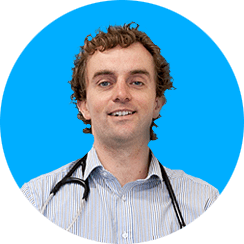Understanding and Navigating the 60% Tax Trap for UK Healthcare Professionals
Introduction
When it comes to taxation in England and Wales, many might be under the impression that the maximum income tax rate caps at 45% for individuals earning over £125,140. However, a lesser-known but far more financially impactful tax rate lurks below the surface: the 60% effective income tax rate. This tax trap affects those earning significantly less than £125,140, particularly targeting individuals whose incomes hover around £100,000 to £125,140. Today, we aim to shed light on who this affects, particularly doctors, dentists, and healthcare professionals, and share seven strategies to help you avoid this financial pitfall.
Understanding the 60% Marginal Tax Rate Trap
Before we delve into the ways to circumvent this financial snag, it’s crucial to understand how the 60% marginal tax rate comes into play. In the UK, standard income tax rates are structured at 20%, 40%, and 45%. However, as income surpasses £100,000, every additional £2 earned results in the loss of £1 from your personal allowance, significantly hiking your effective tax rate to 60%. For those in Scotland, this rate can go up to 67.5%. Why does this rate exist? It dates back to 2010 when the government needed a strategy to manage national debt post-2008 financial crisis. The scheme supports the clawback of the personal allowance beyond £100,000, effectively bumping taxes due to the exponential reduction in personal allowance. This turns a seemingly straightforward pay rise into a complex tax calculation, often resulting in shocking tax bills.
Seven Strategies to Avoid the 60% Tax Trap
Navigating this intricate tax landscape calls for tactical planning, especially for healthcare professionals close to the £100,000 mark. Here’s a step-by-step guide to sidestepping excessive taxation:
1. Maximise Claims for Employment Expense:
Ensure you’re claiming all allowable expenses like professional subscriptions and exam costs, which can reduce your net income to help stay below key tax thresholds.
2. Utilise Gift Aid Donations:
Donating to charities not only provides tax relief but also extends your basic rate band. Donations can even adjust your annual income, and uniquely, these can be backdated to the previous tax year, offering surprising flexibility.
3. Contribute to Private Pensions:
Private pensions can reduce your adjusted net income. However, tread cautiously due to contribution limits and potential annual allowance charges. Consulting with a financial advisor is wise before significant contributions.
4. Leverage the NHS Pension Scheme:
Ensure your NHS pension contributions are accurate and up to date. Properly calculated contributions can keep your income below critical tax brackets.
5. Plan Around Child Benefits:
For those entitled to child benefits, keep your income strategically below clawback thresholds or register with HMRC to maintain National Insurance credits without physically receiving the benefits.
6. Equalise Income with a Partner:
For those in dual-income households, evenly distributing income can strategically keep both partners under specific income thresholds, reducing both parties’ tax liabilities.
7. Consider Working Less:
Although counterintuitive, sometimes, especially near threshold limits, opting out of overtime or additional shifts can financially benefit alongside non-monetary perks from employers like additional leave or pension contributions.
Conclusion
For healthcare professionals, understanding and strategically navigating these tax rules can be the difference between a fair or financially oppressive tax bill. Transparent and logical tax systems should reward additional work with increased take-home pay, not penalize it. As we’ve discussed, leveraging external expertise and understanding these hidden tax penalties can allow you to retain more of your hard-earned income. For further advice and detailed guidance, Medics’ Money provides a vast array of resources including guides, expert consultations, and a community of over 60,000 health professionals staying informed through regular updates. Subscribe to their channels and newsletters for consistent, expert financial advice aimed at empowering healthcare professionals. Stay informed, plan wisely, and navigate your financial future with confidence.








